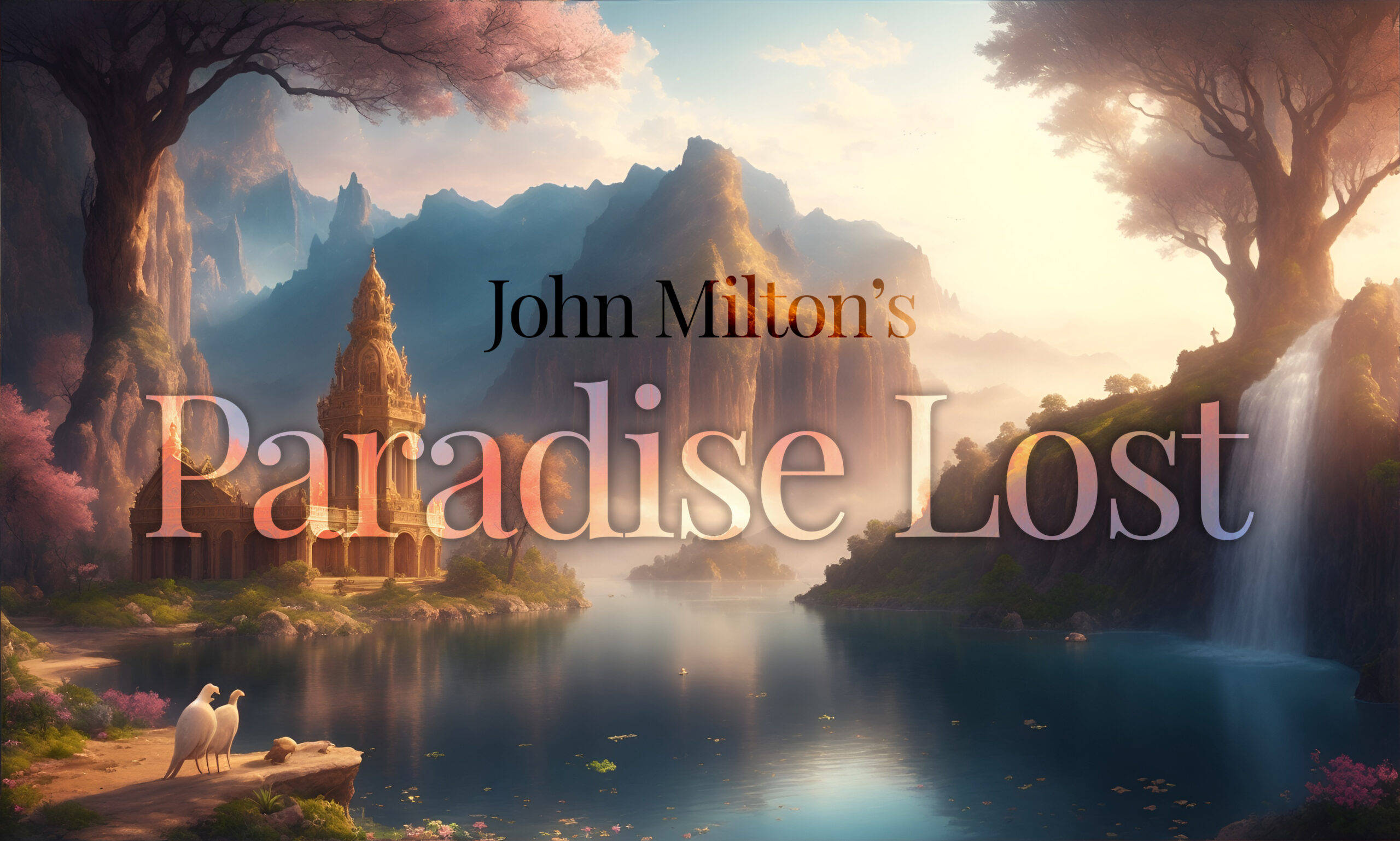Analyze the depiction of Hell in Paradise Lost. How does Milton describe and portray Hell as a setting? Discuss the symbolic significance of Hell and its role in the overall narrative.

Description of Hell in Paradise Lost
In John Milton‘s epic poem Paradise Lost, the description of Hell is a crucial element that contributes to the overall narrative. Through vivid and powerful imagery, Milton portrays Hell as a setting of profound darkness, suffering, and despair. The depiction of Hell serves a symbolic purpose, representing the consequences of rebellion and the absence of divine grace. Furthermore, Hell plays a significant role in shaping the characters and themes of the poem, highlighting the contrast between good and evil and exploring complex philosophical and moral concepts.
Milton’s description of Hell is characterized by its stark and vivid imagery, creating a sense of terror and hopelessness. He employs a variety of sensory details to paint a haunting picture of the infernal realm. For example, he describes Hell as “a dungeon horrible, on all sides round / As one great furnace flamed, yet from those flames / No light; but rather darkness visible” (Book I, lines 60-62). Hell is depicted as a vast and desolate landscape, filled with burning lakes, fiery caverns, and sulfurous fumes. Milton’s choice of words such as “dungeon,” “flames,” and “darkness visible” evokes a sense of imprisonment, suffering, and despair. The imagery used by Milton in describing Hell serves to evoke a visceral response from the reader, immersing them in the horrors of this bleak and desolate realm.
One of the symbolic significances of Hell in Paradise Lost lies in its representation of the consequences of rebellion and disobedience. Hell becomes the ultimate punishment for those who defy divine authority. It serves as a prison for Satan and the fallen angels who rebelled against God. The suffering and despair experienced by the inhabitants of Hell are a direct result of their rebellion, serving as a warning to readers about the dire consequences of defying God’s will. The depiction of Hell as a place of punishment emphasizes the moral and spiritual repercussions of disobedience and rebellion.
Furthermore, Hell symbolizes the absence of divine grace and the separation from God’s presence. It is a realm devoid of light, hope, and redemption. Milton describes Hell as a place where darkness prevails, and the light of God’s love and mercy is completely absent. The fallen angels, who once experienced the divine radiance of Heaven, are now condemned to eternal darkness and separation from God. This absence of divine presence underscores the significance of God’s grace and the devastating consequences of severing one’s connection with the divine. Hell represents the utter alienation from God and serves as a reminder of the importance of embracing divine goodness and seeking redemption.
Moreover, Hell plays a crucial role in shaping the characters and themes of Paradise Lost. It serves as a contrasting backdrop to the heavenly realms of Heaven and Eden, highlighting the stark dichotomy between good and evil. The contrast between the beauty and order found in God’s creation and the chaos and suffering in Hell underscores the moral choices and consequences faced by the characters. Hell becomes a site of temptation and corruption, where characters such as Satan and his followers succumb to pride, envy, and despair.
The description of Hell also serves to explore complex philosophical and moral concepts. Milton engages with theodicy, the problem of evil, and the nature of human free will in the portrayal of Hell. Hell becomes a testing ground for human virtue and resilience, highlighting the choices individuals make in the face of suffering and despair. Milton raises questions about the nature of evil, the role of suffering, and the responsibility of individuals in shaping their own destinies.
Additionally, Milton’s depiction of Hell adds depth and complexity to the characters, particularly Satan. Satan’s interactions with Hell reveal his resilience, determination, and capacity for self-deception. Despite the suffering and darkness, Satan finds solace and a sense of purpose in ruling over Hell. Milton portrays Satan as a complex and captivating figure, luring the reader into understanding his motivations and inner conflicts. Satan’s presence in Hell emphasizes the allure of rebellion and the complexities of human nature.
Furthermore, Hell serves as a backdrop for the themes of redemption and the possibility of transformation. While Hell represents the consequences of rebellion and disobedience, it also becomes a catalyst for introspection and self-awareness. Characters such as Adam and Eve, who descend into Hell as a vision, gain insight into the consequences of their actions and the potential for redemption. Hell becomes a space for reflection and a reminder of the need for repentance and spiritual growth.
In conclusion, Milton’s description of Hell in Paradise Lost is a vivid and powerful portrayal that serves multiple purposes within the narrative. It symbolizes the consequences of rebellion and the absence of divine grace, emphasizing the moral and spiritual repercussions of disobedience. Hell plays a significant role in shaping the characters and themes of the poem, highlighting the contrast between good and evil and exploring complex philosophical and moral concepts. Through his vivid imagery and rich descriptions, Milton immerses the reader in the horrors of Hell, evoking a sense of terror and despair. Hell becomes a powerful symbol that resonates throughout the poem, reminding readers of the choices they make and the consequences that follow.
*****
Read More: Questions and Answers from Paradise Lost by John Milton


